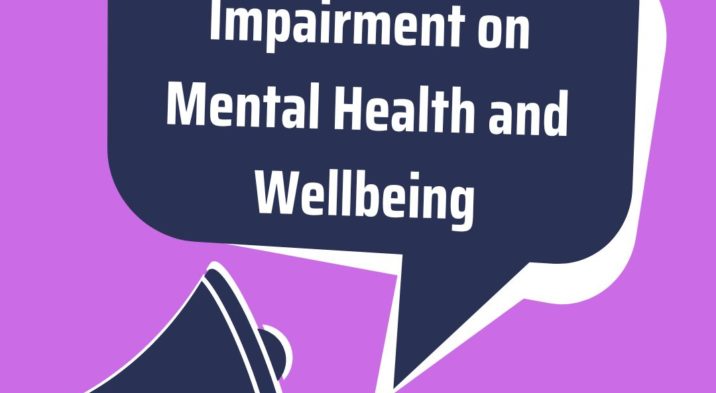
The Impact of Vision Impairment on Mental Health and Wellbeing:
In a world where sight is often taken for granted, vision impairment represents unique and transformative issues. Beyond the physical challenges, the impact of vision impairment on mental health and overall wellbeing is a crucial aspect that deserves attention and understanding.
For those who are diagnosed with an eye condition, individuals may experience emotions associated with the mourning process such as shock, grief and anger. The word we would like to highlight here is “individuals” and that is important as everyone is different and their experience of vision impairment and how they feel is unique to them.
The emotional challenges that accompany vision loss can significantly impact mental health, and acknowledging these struggles is a critical first step in fostering a supportive environment.
Loss of Independence:
One of the primary mental health challenges is the potential loss of independence. Simple daily activities that were once performed effortlessly may now require assistance, adaptation or may take longer to complete. This shift in autonomy can lead to feelings of frustration, helplessness, and even a loss of identity. However, empowering individuals with the tools and skills to regain independence is fundamental to mitigating the mental health impact.
Social Isolation:
Social anxiety can be caused due to worries of not recognising friends, or fears involving navigating social spaces can lead to withdrawal from social activities. This isolation can lead to reduced wellbeing and therefore mental health issues, as the sense of connection and community becomes compromised. Building inclusive spaces and encouraging understanding are crucial steps.
Anxiety and Depression:
Living with vision impairment can heighten levels of anxiety, particularly regarding safety, mobility, and the unknown. The increased reliance on other senses to navigate the world can be mentally taxing. Likewise, the constant adaptation to new challenges may contribute to a higher risk of depression. Addressing these mental health concerns requires a holistic approach, combining emotional support, counselling, and practical strategies to manage anxiety-inducing situations.
Coping Strategies and Support:
While the mental health challenges associated with vision impairment are significant, there is a wealth of coping strategies and support networks available. Vision Rehabilitation Service assistive technologies, and counselling services can play a crucial role in equipping individuals with the tools to navigate their new reality successfully. Moreover, connecting with communities of individuals facing similar challenges provides a sense of camaraderie and shared experience.
Understanding the impact of vision impairment on mental health and wellbeing is a crucial step towards creating a more inclusive society. Vision Support serves to raise awareness and break down barriers associated with vision impairment.
If you would like to speak to us about engaging more with people with a vision impairment in your community or our upcoming counselling and wellbeing service, please get in touch by calling 01244 381515 if you live in North Wales, or 01244 478910 if you live in Cheshire.
Other useful information:



